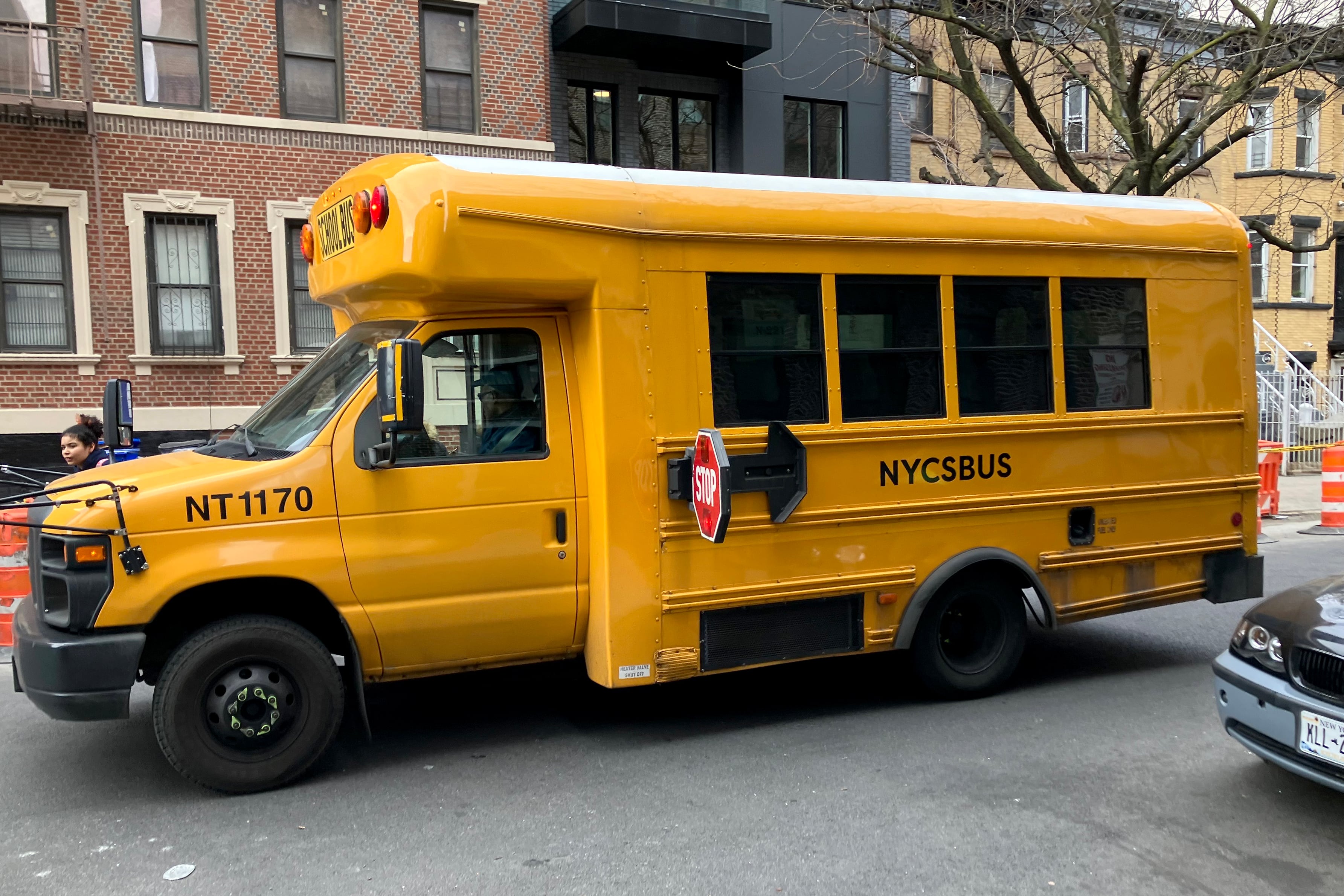Sign up for Chalkbeat New York’s free daily newsletter to keep up with NYC’s public schools.
New York City’s yellow school bus services will not face disruptions from a bus worker strike next week as the new academic year begins, union officials confirmed Friday.
The news comes after weeks of tense negotiations between the Amalgamated Transit Union, which represents about half of New York City’s public school bus drivers and attendants, and bus companies that contract with the city.
Public schools in New York City begin Sept. 7
In an email, Carolyn Rinaldi, chief of staff at ATU, said that while there would be no bus service strike-related disruption next week as the new school year gets underway, the union remains at the bargaining table “to fight for what our members deserve — a fair contract.”
“For now, routes will be serviced and negotiations are ongoing,” she said, “but time is running out.”
Word that bus service would continue uninterrupted, for now, is likely to be a relief to many of the tens of thousands of families who rely on yellow bus services to transport their children to and from school, especially as it comes just days before school starts. But with negotiations ongoing, a bus worker strike could still occur in the coming weeks.
Even without a looming strike, the city’s sprawling school bus system often gets off to a rocky start, with many families experiencing delays or no-show buses.
Education Department officials previously warned a strike could impact roughly 80,000 students across 4,400 routes in the five boroughs. That’s more than half of the roughly 150,000 students who ride yellow buses across approximately 9,000 routes during the school year.
A strike would also disproportionately impact the city’s youngest students, who can’t take public transit on their own, as well as those with disabilities. Officials estimated roughly 25,000 of the potentially affected riders are students with disabilities.
Earlier this week, amid growing concerns, the city’s education department released a set of guidelines detailing how families who rely on busing could navigate a strike.
Some of the city’s alternative solutions include prepaid MetroCards and free rideshare services. But such programs can require parents to accompany their children to and from school — a trip that isn’t always feasible for working parents.
One parent and public school teacher who relies on busing said earlier this week that the potential strike had filled them with anxiety.
Without school buses, they said, “We can’t figure out how to get our children to and from school safely, and maintain our jobs.”
Alex Zimmerman contributed reporting.
Julian Shen-Berro is a reporter covering New York City. Contact him at jshen-berro@chalkbeat.org.






